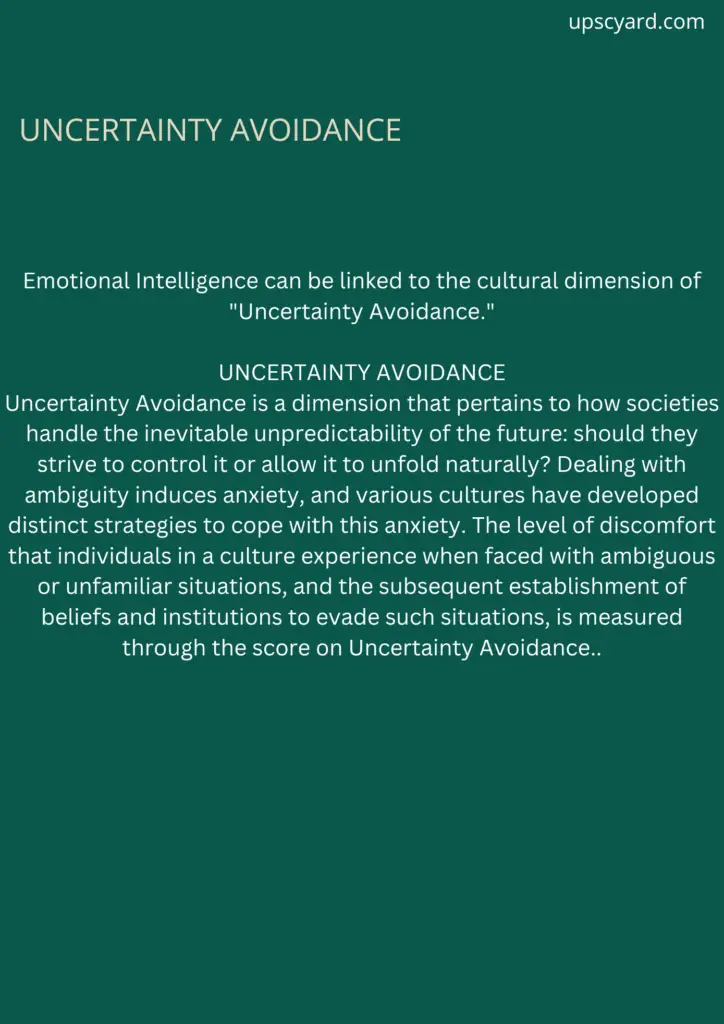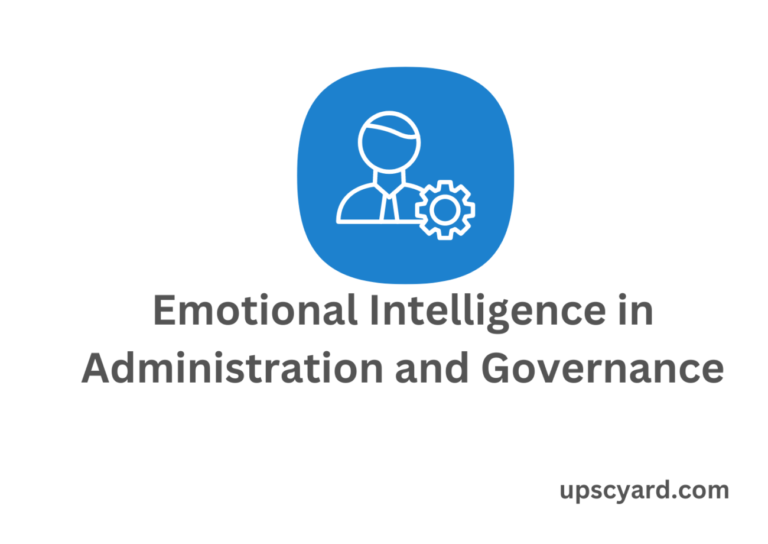Emotional intelligence, often referred to as emotional quotient or EQ, encompasses the capacity to comprehend, apply, and regulate one’s own emotions in constructive manners, leading to stress reduction, effective communication, empathetic connections with others, adeptly navigating obstacles, and resolving conflicts with ease.
Wayne Payne’s doctoral thesis, titled “A Study of Emotion: Developing Emotional Intelligence,” is widely recognized as the origin of the term “emotional intelligence.” However, it was a book named “Emotional Intelligence – A Practical Guide,” published in 1995, that truly popularized the concept.
In his work “Why It Can Matter More Than IQ,” Daniel Goleman argues that emotional intelligence surpasses IQ in its significance for achieving success in life.
Individuals with high EQ exhibit traits such as self-awareness, motivation, empathy, and strong social skills.
Goleman further posits that IQ serves as a baseline quality, essential for securing entry-level to high-level management positions. However, once leaders reach this level, IQ becomes less crucial, as most leaders already possess a high intelligence quotient.
For Emotional-Intelligence in administration and governance . visit this
How to Foster Emotional Intelligence
Emotional intelligence, a crucial aspect of human life, can be nurtured and developed through various channels, including:
- Families: Our family members, with whom we interact daily, play a pivotal role in cultivating emotional intelligence. They provide a non-judgmental environment where we can truly be ourselves. The formative years, especially the first five, are particularly significant for learning and shaping our emotional intelligence.
- Schools and Educational Institutes: Classrooms are where future citizens are molded, and emotional intelligence is a vital part of this development. Interactions with teachers, fellow students, and exposure to literature and knowledge all contribute to enhancing emotional intelligence.
- Media: Often referred to as the fourth pillar of democracy, the media has a significant influence on our lives, thoughts, and behavior. It shapes our opinions and perspectives. In the digital age, social media, for instance, has become a powerful force that can impact our emotional intelligence, as information spreads rapidly, often unquestioned.
- Religious Institutions: Many religious institutions exert a profound influence on individuals’ lives, imparting values and teachings that can contribute to emotional intelligence.
- Workplaces: Employment environments teach us valuable life lessons and skills, especially when practical experience is required. We develop and refine our emotional intelligence through interactions with colleagues, superiors, and various workplace scenarios.
Incorporating these aspects into our lives can contribute significantly to the development of emotional intelligence, enriching our understanding of this essential attribute.

How to Boost Your Emotional Intelligence
Improving your emotional intelligence is a valuable endeavor that can positively impact your personal and professional life. Here are some effective ways to enhance your emotional intelligence:
- Adopt Different Perspectives: Successful individuals not only consider their own viewpoint but also strive to understand others’ perspectives. Gandhi’s “Talisman” is a valuable guideline: when faced with uncertainty or a moral dilemma, think about the most vulnerable person you’ve encountered and evaluate whether your actions will benefit them.
- Meditation: Engaging in meditation practices can be highly beneficial for emotional intelligence. Meditation provides a means to soothe turbulent emotions, enhances your capacity to focus, and promotes mental clarity. It can help you gain better control over your thoughts and actions.
Additionally, you can explore these techniques to further enhance your emotional intelligence:
- Anger Management: Developing strategies to manage and express anger constructively is a crucial aspect of emotional intelligence. This involves recognizing triggers, practicing patience, and learning to communicate effectively during moments of anger.
- Stress Management: Managing stress is essential for maintaining emotional balance. Techniques such as deep breathing, time management, and seeking social support can help you cope with stress effectively.
By incorporating these practices into your life, you can cultivate emotional intelligence, leading to improved self-awareness, better relationships, and enhanced overall well-being.
Application of Emotional Intelligence in Personal and Professional Life
Emotional intelligence is a fundamental quality that significantly contributes to our overall well-being. Understanding and nurturing emotional intelligence not only lead to personal success but also play a crucial role in ensuring mental health and preventing various mental illnesses.
In both our personal and professional lives, emotional intelligence proves invaluable by:
- Emotion Management: Enhancing our ability to understand, manage, and harness our own emotions effectively. This helps us maintain inner balance and navigate life’s challenges with composure.
- Relationship Management: Fostering better relationships with others by empathizing, communicating more effectively, and resolving conflicts constructively. Strong, positive relationships are a cornerstone of a happy life.
- Building a Better Society: Contributing to the creation of a more emotionally aware and empathetic society where individuals support and uplift one another.
- Becoming Responsible Citizens: Equipping us to engage in responsible citizenship by making informed decisions, understanding the needs of our community, and actively participating in social initiatives.
In the realms of bureaucracy and politics, possessing emotional intelligence is especially vital. Here, emotional intelligence entails:
- Understanding the individuals with whom you interact.
- The ability to positively influence others and guide their behavior in alignment with the task at hand.
- Skill in resolving disputes and challenges amicably.
Emotional intelligence serves as a cornerstone for success, both personally and professionally, by facilitating meaningful connections, effective communication, and the ability to navigate complex situations with tact and diplomacy.
Emotional Intelligence and the Impact of COVID-19
The advent of COVID-19 has disrupted the lives of countless individuals, ushering them into a world starkly different from the comfort they once knew. In this unprecedented crisis, citizens have not only lost their livelihoods but also found themselves grappling with the scarcity of life’s basic necessities. Regrettably, many have been left to fend for themselves, receiving minimal support from both society and governments alike.
Furthermore, the pandemic has triggered an alarming surge in domestic violence cases, a concerning trend reported by organizations such as UN Women and the National Commission for Women. Additionally, there has been a noticeable increase in mental health issues, highlighting the dire need for emotional support and mental well-being initiatives.
Amid this crisis, a glaring lack of empathy and understanding has been observed among all stakeholders involved. This deficiency has hindered the development of appropriate policies and responses to address the suffering of people and citizens.
It is during such times of pandemics, crises, and wars that a heightened display of emotional intelligence becomes imperative to alleviate the hardships endured by individuals and communities. Unfortunately, governments have, in many instances, fallen short in comprehending the necessity for emotional intelligence, often resorting to oppressive measures that exacerbate the suffering of their citizens.
The haunting images of migrants embarking on arduous journeys back home, met with merciless treatment by law enforcement, serve as a poignant reminder of the breakdown of emotional intelligence during these trying times. The need for empathy, compassion, and a deeper understanding of human emotions has never been more apparent than in the face of such unprecedented challenges.
The significance of emotional intelligence and emotional stability in preventing suicides triggered by gaming, betting, and similar activities.

Difference between EQ(Emotional intelligence) and IQ(Intelligence quotient)
The “Intelligence Quotient,” commonly known as IQ, is a measure of a person’s apparent intelligence relative to others. It is determined by multiplying one’s mental age, as indicated by a standardized test, by 100, or by comparing one’s performance on an intelligence test to the average performance of others in the same age group.
On the other hand, Emotional Quotient, or EQ, refers to the ability to recognize and manage one’s own emotions as well as the emotions of others. EQ assessments are used to evaluate Emotional Intelligence in individuals.
Emotional intelligence
Back in 1990, the term “emotional intelligence” was introduced by Peter Salovey and John Mayer.
- Emotional Self-Awareness: Being in tune with your own emotions and recognizing them as they arise.
- Self-Management: Exercising control over impulses, regulating emotional responses, and understanding the underlying motivations behind those emotions.
- Empathy: Sensing and understanding the emotional signals of others, and being able to empathize by seeing things from their perspective and acknowledging their emotional experiences.
- Self-Motivation: Channeling emotions towards personal goals and having the capacity to resist immediate impulses for long-term achievements.
- Relationship Management: Skillfully responding to the emotions of others, while also effectively managing one’s own emotions, displaying social competence in handling interactions and relationships.
The significance of Emotional Intelligence (EI) in Civil Services is paramount due to the various challenges and complexities faced by civil servants in their work environment. Some of these challenges include:
- Growing Regional, Economic, and Digital Divide: Civil servants need to navigate through the increasing disparities and bridge gaps in various regions, economic sectors, and digital advancements to ensure equitable development.
- Pervasive Application of IT: With the widespread use of Information Technology, civil servants must adapt to technological advancements and utilize IT tools efficiently to enhance governance and service delivery.
- Demand for Improved Governance: There is a constant need for better governance practices to address societal concerns effectively and meet the expectations of citizens.
- Politicization of Issues: Challenges can get easily entangled in political dimensions, requiring civil servants to handle sensitive matters with tact and impartiality.
- Political Pressure and Rampant Corruption: Civil servants often encounter political pressures and must uphold ethical standards to combat corruption and maintain public trust.
- Decentralization of Governance: As governance is decentralized to grassroots levels, civil servants face increased responsibilities in decision-making and public service delivery.
- Globalization, Migration, Terrorism, Cybercrimes, and Information Technology: In an interconnected world, civil servants must grapple with global issues, such as migration, terrorism, cybercrimes, and advancements in information technology, which demand a nuanced understanding and response.
Emotional Intelligence equips civil servants with the ability to manage their emotions, communicate effectively, empathize with diverse perspectives, and navigate complex situations with resilience and sensitivity. Developing EI skills is crucial to tackle these multifaceted challenges and enhance the effectiveness of civil services in meeting the needs of society.
The Utilities and Application of Emotional Intelligence in Administration and Governance
Emotional Intelligence (EI) proves to be a valuable asset for administrators and managers in both government and business settings.
- Research on Emotional Intelligence suggests that individuals strong in various emotional competencies tend to outperform those lacking in these areas.
- The impact of Emotional Intelligence extends to team dynamics, influencing both the quality of relationships among team members and the team’s ability to achieve its objectives.
- By recognizing our own strengths and weaknesses in EI, as well as those of our team members, we can enhance the interpersonal dynamics within the team.
- Conflicts in organizations are often influenced by differences in Emotional Intelligence, but understanding how to leverage EI effectively helps in resolving such conflicts and boosting overall group productivity.
- Knowing the differences in EI among individuals and their respective strengths and weaknesses can lead to reduced conflict and increased acceptance.
- In the realm of government employment, Emotional Intelligence holds particular significance for various reasons:
- Targeting beneficiary schemes effectively through better understanding of people’s emotional needs.
- Motivating subordinates, especially during intense or demanding situations.
- Gaining insight into the challenges and stress faced in public services.
- Developing policies that improve the lives of the most vulnerable segments of society.
- Making well-informed decisions with the aid of EI.
- Bridging communication gaps and minimizing the likelihood of miscommunication.
- Cultivating adaptability, empathy, and transparency in administrative practices.



